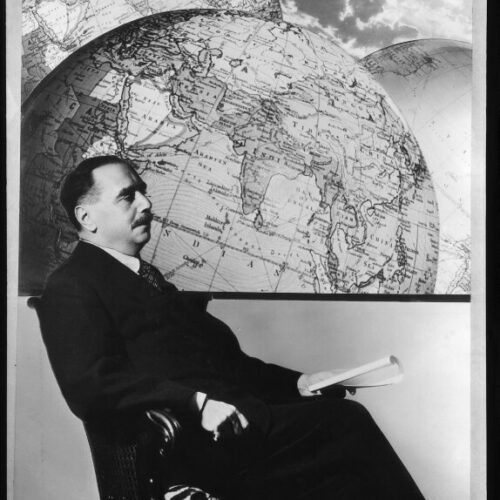

The Progressive League was an organisation dedicated to the advancement of scientific humanism, founded by author H.G. Wells and philosopher C.E.M. Joad in 1932. Heavily inspired heavily by Wells’ 1928 book The Open Conspiracy, the League brought together progressive, socialist, and liberal campaigners to promote reform in a wide range of social issues, including the repeal of discriminatory laws on homosexuality and divorce, legalising abortion, and abolishing censorship. Its stated aim was to ‘provide a crystallisation of advanced opinion on all matters relating to human welfare as a whole’.
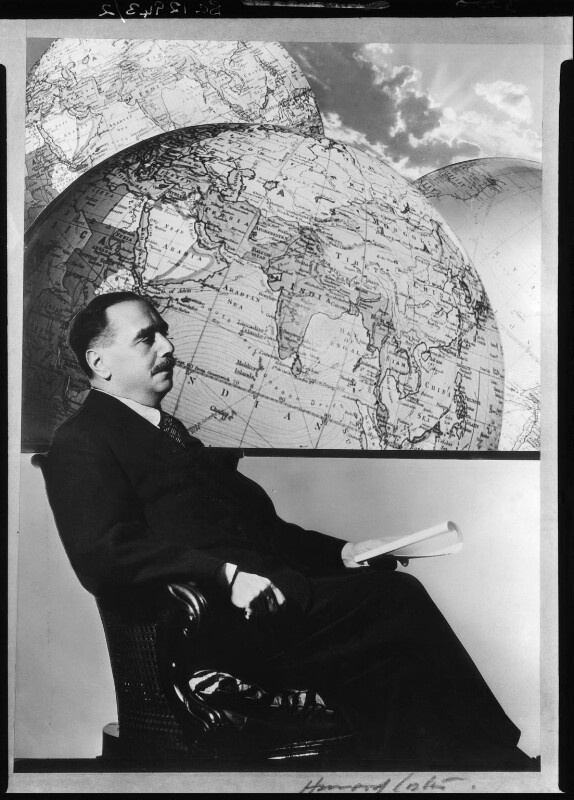
By the late 1920s, Wells had an established reputation as an author of science fiction, social commentary and utopian futurism. Novels including The War of the Worlds, The Time Machine and The World Set Free had foreseen technological advances such as space travel and nuclear weapons, and how they could reshape society. The Open Conspiracy, bearing the subtitle of either Blue Prints for a World Revolution or What Are We To Do With Our Lives?, is seen as his manifesto for how humankind could liberate itself politically and socially through scientific advancement. It offered a stinging critique of ‘false religious associations’ and presented a vision to ‘establish human control over the destinies of life and liberate it from its present dangers, uncertainties and miseries’.
The book sold well and proved an influential manuscript among noted humanists at the time, including Bertrand Russell, Julian Huxley and C.E.M. Joad. As a member of the Rationalist Press Association, Joad and other rationalists wanted the group to endorse a platform of scientific humanism and support cooperation between progressive and humanist organisations. Failing in this endeavour, Joad’s group formed an independent organisation called the Federation of Progressive Societies and Individuals (FPSI). In a 1932 edition of the New Statesman, Wells had called for the creation of a federation of ‘open conspirators’ to change the world and was invited to the 1932 conference to establish the new Federation’s manifesto.
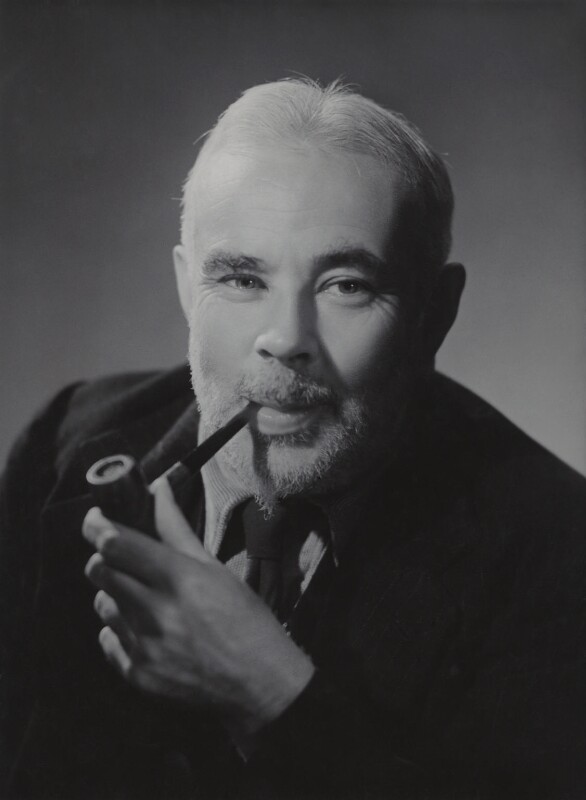
The FPSI emerged in part as a response to the Labour Party’s overwhelming defeat in the 1931 general election and the fracturing of the Labour movement into a proliferation of progressive associations and publications. Joad was keen to emphasise the need to unite the range of ‘notoriously unorganisable’ thinkers and the new organisation adopted a wide-ranging policy platform. Joad published its programme, the Charter for Rationalists, in 1932. The new organisation’s agenda included repealing divorce laws, repealing laws against homosexuality, legalising abortion, removing restrictions imposed on the Sabbath, preventing censorship of books, and promoting conservation and town planning. The FPSI was noted for its emphasis on breaking open the conservative religious constraints that governed sexuality and gender politics at the time, to such an extent that its initials were said to stand for the ‘Federation of the Promotion of Sexual Intercourse’. As with many scientific rationalists of the era, however, they also endorsed a programme of population control and eugenics through sterilisation.
The Federation merged with a number of smaller organisations during the 1930s, including the H.G. Wells Society, whose aim was to enact the Open Conspiracy manifesto and campaign for a world government, and adopted the name of The Progressive League from 1940. The League never became the hub of a political movement that its founders envisioned, but it published a regular journal called Plan throughout the 1940s. The organisation declined in influence during the second half of the twentieth century before eventually being dissolved in 2005. The ideas generated in the early years of the League’s activities lived on as individuals and committees splintered away, including through the Marriage Law Reform Society and, in its position on legalised abortion and voluntary euthanasia, the British Humanist Association (now Humanists UK).
By Simon Hilditch

Virtue alone is enough to live happily and brings its own reward. John Toland, Pantheisticon (1720) John Toland was an […]
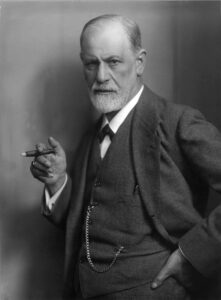
If after this survey of the nature of illusions and delusions, we turn again to religious doctrines, we may reiterate […]
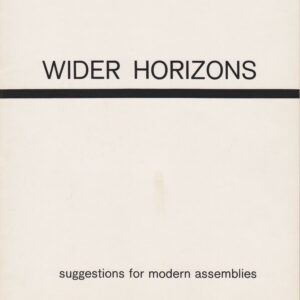
I suggest that the assembly we really want is an act of celebration, rather than worship. There is value in […]
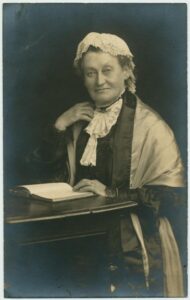
Dr Alice Vickery was a humanist, physician, and devoted champion of women’s reproductive rights. Her tombstone inscription remembers her as […]